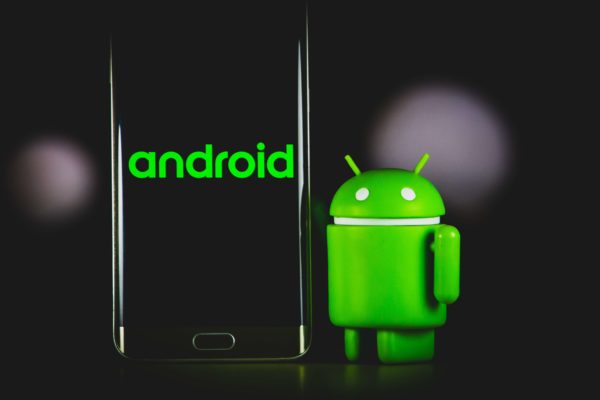Comparing Go and C++
If you Google ‘the most popular programming languages in 2022,’ you’ll come across several top lists that, according to various estimates, include C++ and Go. Knowing one of the best programming languages benefits the start of one’s technical career. But how to choose the language and not regret your choice?
Before you pick a language for your career growth, it’s beneficial to figure out what they are used for and how they work. C++ and Go (or Golang) are multi-purpose programming languages that have their powers and drawbacks. In this article, we compare C++ and Go in terms of their performance, speed, security, and more.
С++: A Brief Definition
“C++ is an invisible foundation of everything” – Bjarne Stroustrup, the father of C++
C++ is a statically typed programming language, allowing engineers to use object-oriented, functional, or generic programming approaches. The C++ key benefit is flexibility because it gives developers the power to design programs for many platforms.
The simplest ‘Hello World!’ program, written in C++.
#include <iostream> using namespace std; int main() { cout << "Hello World!"; return 0; }
Developers use С++ in
Due to C++ versatility and bottom-up approach to creating programs, engineers can take total control of each piece of code and unite them into complex systems. C++ offers high and middle-level features for developers to leverage creativity and build any program for any platform.
With C++, you can create operating systems, games, web browsers, compilers, data processing software, etc. The most notable products made with C++ include Windows OS, YouTube, Shopify, Amazon, and Adobe Photoshop.
C++’s first stable release was in 1985. Since then, the language has progressed and built a community around itself. If you have an issue or a specific question, you’ll find answers and solutions right away. C++ stays an in-demand language, so finding a job won’t be a burden for you.
In case you want to find a job faster, you can always trust Talentica to search for the best C++ jobs for you.
Go: A Brief Definition
“Go changed the conversation around how to program multicore computers.” – Rob Pike, co-creator of Go
Go or Golang is a statically typed, general-purpose programming language, famous for supporting concurrent computing. Go allows developers to use multicore CPU efficiently and improve program performance.
The simplest ‘Hello, World!’ program code, is written in Go.
package main import "fmt" func main() { fmt.Println("Hello, world!") }
Developers use Go in
Go was released by Google in 2012 to replace C++ within the company. Rob Pike, Robert Griesemer, and Ken Thompson gathered the best features of C, Python, and JavaScript to create the language of high performance and readability featured by static typing.
Go is multi-purpose, so developers can use the language to build cloud-based applications, APIs, web servers, stand-alone tools, infrastructures, on-demand services, and media platforms. The most famous applications powered by Go include Uber, SoundCloud, Dropbox, and Twitch.
Go is an open-source project. Many developers admire Go for its simplicity, and advanced features such as concurrent computing, garbage collection, and cross-platform development. The Go community created a page where anyone can access handy information and reach out to the community.
Go is growing its popularity among developers. HackerRank 2020 report revealed that Go had held a leading position among the most popular languages to learn for three years. No wonder it’s so popular, as there are over 17,000 job offers in the US and over 12,000 in the EU only on LinkedIn.
If you’re about to start your career path as a Golang developer, consider Talentica a source to find a job.
Make your company's vision a reality!
Hire a developer, code faster, deliver better
Difference Between Go and C++
C++ and Go have a lot in common. Both languages are used to build cross-platform programs and have a static type. However, how do you compare what language is better and for what purpose? We’ve created a comparison table for your convenience.
| Procedural vs Object-Oriented | C++ leverages classes to manipulate objects, and build the functionality around them. | With Go, you write code in the order you expect the computer will run them. |
| Speed and Readability | C++ is a middle-level programming language. It has a complex syntax, which complicates readability, and slows down code writing and compiling. | Go was created with the user in mind. Go syntax is easy to understand, and it compiles faster than C++. |
| Performance | C++ shows excellent performance due to its closeness to machine code and OOP support. | Go beats most high-level languages in performance. It’s good at garbage collection and memory management, however, these features increase performance time. |
| Security | C++ has buffer vulnerability, which sometimes leads to memory overflow and potential complications. | Go provides built-in mechanisms that prevent buffer overflow. |
To Sum Up
Whatever language you choose for your career is up to you.
C++ and Go are perfect for creating complex systems and handy tools. C++ gives more flexibility in writing programs, but also requires bigger responsibility. Go is more programmer-friendly, but includes certain limitations.
If you prefer digging into code and having more control over your program, C++ is the best for you. Go suits those who want to boost their career fast, as it’s a modern, scalable and open-source language.
Faq
Go vs C++: Which is higher paid?
According to a Stack Overflow survey held in 2021, Go developers' annual salaries are between USD 75,000 and USD 80,000. C++ software engineers earn between USD 50 and 55 thousand a year.
C vs C++: Speed
C is slower compared to C++. C is a structure-oriented language, while C++ supports OOP, which helps to improve performance.
Is Go or C++ better for your coding project?
A programming language must help you reach your business goals. Go is best at infrastructures and cloud-based applications, while C++ can handle complex projects such as management software, games, or operating systems.
October 11, 2022





